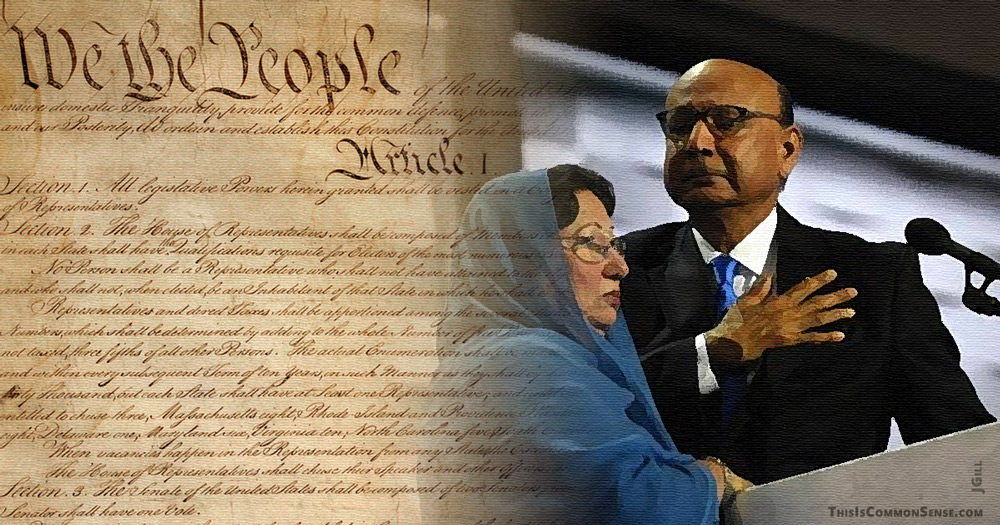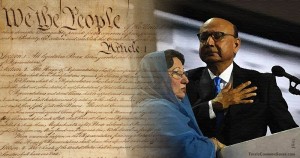“We were blessed to raise our three sons in a nation where they were free to be themselves and follow their dreams.”
Those eloquent words came from the lips of Khizr Khan, the Pakistani immigrant who spoke at the Democratic National Convention last week about losing his son, Capt. Humayun Khan, to a suicide bomber in Iraq.
Describing his family “as patriotic American Muslims with undivided loyalty to our country,” and charging that, “Trump consistently smears the character of Muslims.” Khan asked Donald J. Trump a great question: “Have you even read the U.S. Constitution?”
Then, reaching into his suit pocket, Khan pulled out a copy, adding, “I will gladly lend you my copy.”
Yesterday at Townhall, I declared Khan my Person of the Week. Not just because Mr. Khan is fond of handing out pocket-sized copies of the U.S. Constitution and told the New York Times that his “real hero” is Thomas Jefferson, but because he asked a great question.
Let’s ask all the candidates. That question, for sure, and three additional ones:
- Do you favor repealing parts of the First Amendment to allow incumbent congressmen to regulate their own campaigns and their opponents’ in regard to raising and spending money?
- In the Heller case, the Supreme Court ruled that the Second Amendment provides individuals a “right to bear arms” — will you appoint justices who agree or disagree with Heller?
- As president, will you issue an executive order instructing all federal agencies and police agents to cease any use of civil asset forfeiture?
I’ve got more questions. I bet you do, too.
This is Common Sense. I’m Paul Jacob.

